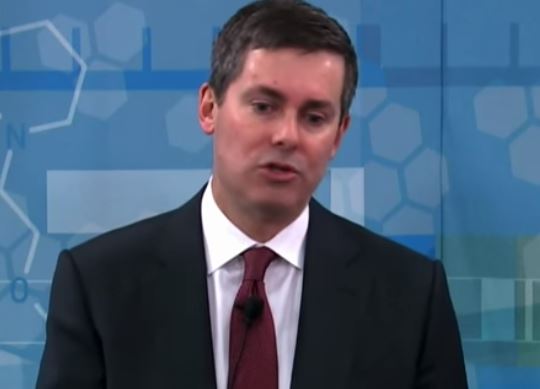Lilly's CEO warns against medicine hoarding during coronavirus crisis

Eli Lilly’s CEO has warned against the hoarding of medicines by individual states and countries in the coronavirus crisis, saying that it will hamper the effort to fight the virus.
David Ricks made his comments at an online briefing from pharma industry leaders on the coronavirus outbreak, at a time when there is no dedicated therapy for SARS-CoV-2, which causes the disease COVID-19.
Ricks, who is also chair of the International Federation of Pharmaceutical Manufacturers and Associations (IFPMA) said that the industry will do all it can to speed up the development of safe and effective vaccines.
But he raised concerns about health systems, pharmacies, or nations that decide to stockpile medicines at this time of crisis, saying that the global supply chain is operating effectively.
Ricks said: “It’s important that we don’t have an environment where one nation or one city, or one region, seek to possess more medicines than are needed.
“The supply chain is built for the global consumption and if we get our workers to the plants and the materials to move we will be able to fill global supply of medicines.
“If we restrict and hoard medicines even at an individual level at a chain of drug stores or at a country level that will severely hamper the ability of people in need to get their essential medicines.”
Ricks made his comments days after reports emerged that president Donald Trump had tried to strike a “US only” deal for a potential vaccine from Germany’s CureVac.
Although Trump’s administration and CureVac have denied the reports, it highlights the pressure that any company developing an effective therapy will face.
[caption id="attachment_65542" align="alignleft" width="179"] Eli Lilly CEO David Ricks[/caption]
Eli Lilly CEO David Ricks[/caption]
Ricks said the industry will use its expertise and know-how to speed up development of safe and effective vaccines and drugs.
After screening libraries to identify treatments for the SARS-CoV-2 virus, there are more than 80 clinical trials under way to test new and existing medicines.
At least nine IFPMA member companies are researching and testing vaccines and treatments, or looking at using existing therapies against the virus.
Late-stage studies of existing medicines could produce readouts within weeks, according to Ricks, with newly-developed medicines following after.
The timeline for developing therapies is “truly remarkable” according to Ricks, with regulators such as the FDA approving studies “within days.”
“Things are moving fast because they need to,” said Ricks.
Asked about pricing strategy for any novel therapy against the coronavirus, Ricks stressed that the emphasis is currently on finding drugs and vaccines to treat it rather than concerns about marketing.
“I have to see a single person ask who will get credit and who will get paid.”
Feature image courtesy of Rocky Mountain Laboratories/NIH












